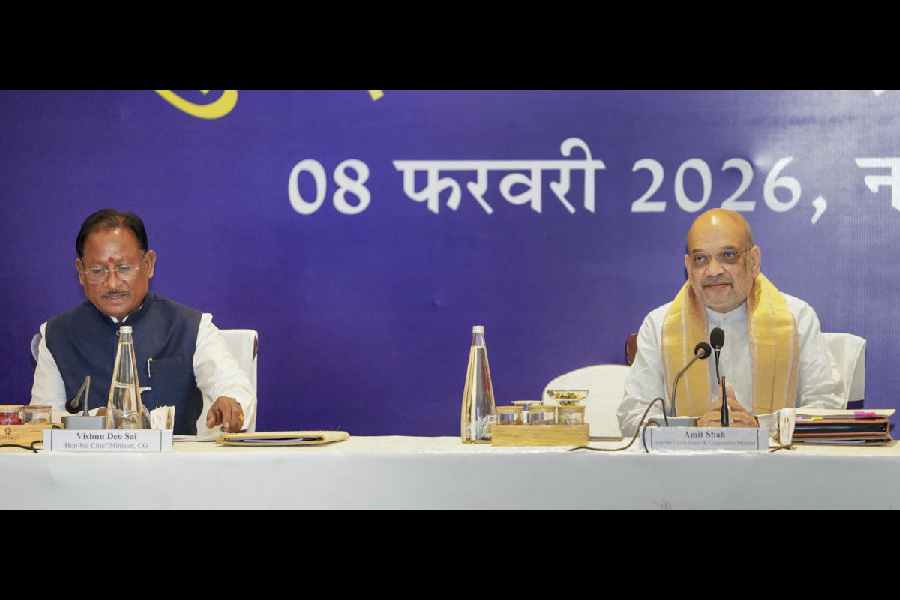Calcutta, May 26 :
Calcutta, May 26:
What about a uniform rate of Rs 300?
No way, people in most areas will surrender their cable connections.
But we must try and arrive at a flat rate. How can people pay Rs 100 in one part of town and Rs 275 in another?
There is no way we can impose the same rates at say, Alipore and Beleghata. But neither can we survive at less than Rs 250 per point...
Can't do without cable television? Be prepared to dig deeper into your pockets this summer and pay the price for 24-hour entertainment. In a dramatic departure from the conflict over connections, operators under the umbrellas of both RPG Netcom and SitiCable have come to the discussion table to arrive at revised - and uniform - subscription rates. Locked in a string of hush-hush, closed-door discussions, they are working out a rate hike to beat all others.
The hike, say insiders, will come into effect from June 1, but the actual implementation could take a while. While a SitiCable member of the joint action committee of cablemen hints at a possible spectrum of Rs 225-325, an RPG operator puts the emerging figure at Rs 300-350.
'The outgo for an operator towards pay channel rates and service charge to RPG Netcom works out to Rs 205.50. Add to that the basic service charge and there's no way one can do business below Rs 300. Perhaps, an independent operator can bring it down to Rs 250 at the most,' says a spokesperson for the joint action panel.
An industry insider maintains that an operator with 700-800 connections can fix a service charge of Rs 80, of which, he spends Rs 55-60 towards maintenance, power, telephone, rent and labour. The rest is his profit.
Justifying the need to hike basic service charge, a SitiCable operator adds: 'Costs have gone up on all fronts. Earlier, we could do with 200-mega hertz amplifiers. Now, 550-mega hertz amplifiers are the order of the day. Besides, costlier cable is required to transmit the increased number of channels and maintain signal strength.'
Through all this, the vital issue of under-declaration is yet to be addressed. Broadcasters allege that cable operators here declare only 20 per cent of their actual connections.
'If all points were declared, there would have been no need for us to increase channel fees every year,' is how a STAR spokesperson puts it. This, in turn, prompts the cableman to pass on the beam burden to the consumer and 'justify a hike'.
From the consumer's point of view, it's a no-win situation. 'We agree with the cable operators that the system of channel packages is not right as it affects the consumer,' says Mala Banerjee, president of the Federation of Consumer Associations, West Bengal. 'But under-declaration and lack of transparency remain the biggest ills plaguing this industry. The operators often resort to arbitrary rate hikes, which can easily be avoided if they declared all their points.'
Every time a hike is slapped, the viewer has little choice but to pay up - even for channels he will never switch on. This is where the conditional access system (CAS) - if and when it is cleared - can enable the viewer to pick his flick, by investing in set-top boxes.
Now, with the final countdown to World Cup 2002 bringing RPG operators and Ten Sports representatives to the talks table on Monday, the two rival cable camps in town are engaged in unity moves. 'At the moment, cable subscription fluctuates wildly from Rs 100 at Topsia to Rs 275 on Park Street. Our effort is to try and bridge this gap,' explained a SitiCable operator. 'But the socio-economic conditions vary sharply from one area to another, making it impossible to bring the entire city under one uniform rate.'
 Monday, 09 February 2026
Monday, 09 February 2026









